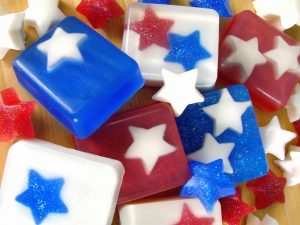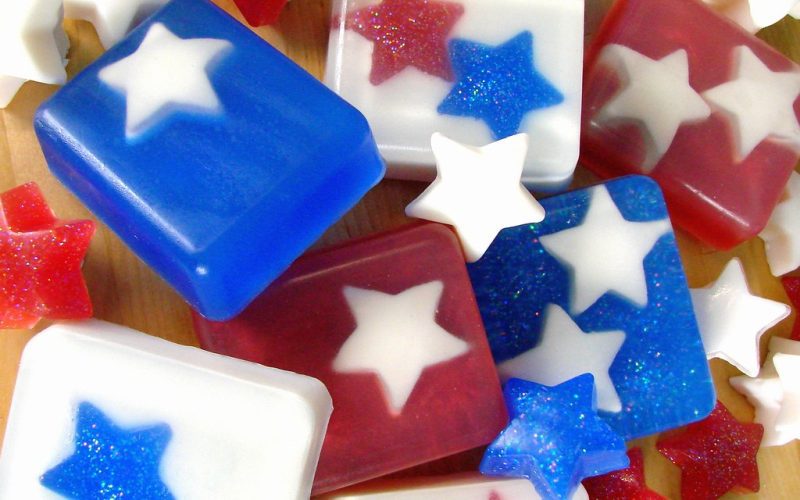Transforming Plastic Waste into Eco-Friendly Soap Bars: A Revolution in Sustainable Chemistry
In an era where environmental concerns loom large, the problem of plastic waste has emerged as a pressing issue that demands innovative solutions. From littering our landscapes to polluting our oceans, plastic waste has cast a shadow over the planet’s well-being. However, a ray of hope emerges from the realm of sustainable chemistry, where scientists are transforming plastic waste into eco-friendly soap bars – a groundbreaking approach that not only mitigates plastic pollution but also offers a glimpse into a more sustainable future.
The Plastic Predicament: A Growing Menace
The scale of the plastic waste problem cannot be overstated. Every year, millions of tons of plastic waste are discarded, overwhelming landfills and finding their way into sensitive ecosystems. From endangering marine life to disrupting food chains, the environmental consequences of plastic waste are far-reaching and alarming. This predicament demands urgent action and innovative thinking.
Sustainable Chemistry to the Rescue
Enter sustainable chemistry, a field that aims to design and develop chemical processes that minimize the environmental impact. This paradigm shift in chemistry is not only about finding alternatives to harmful chemicals but also about reimagining waste as a valuable resource. By harnessing the principles of sustainable chemistry, scientists are embarking on a mission to transform plastic waste into usable products, including soap bars.
From Waste to Suds: The Science Behind the Transformation
The process of turning plastic waste into soap bars involves a sophisticated blend of chemistry and engineering. Plastic waste is broken down into its constituent molecules through various chemical reactions. These molecules are then harnessed to create soap compounds. The science behind this transformation is intricate, involving catalytic reactions, depolymerization processes, and careful selection of reaction conditions. By unraveling the molecular structure of plastic waste, scientists are unlocking the potential to create something valuable from something previously discarded.
The American Chemical Society’s Leading Role
At the forefront of this transformative journey is the American Chemical Society (ACS), a distinguished organization known for its dedication to advancing the field of chemistry. With a rich history and a forward-looking vision, ACS is spearheading research and initiatives aimed at solving global challenges. Their commitment to sustainable chemistry has positioned them as trailblazers in the quest to convert plastic waste into useful products. Through collaborative efforts, ACS is driving research, funding projects, and fostering partnerships that pave the way for a more sustainable world.
Crafting Eco-Friendly Soap Bars: A Step-by-Step Guide
You might wonder how you can play a part in this revolutionary process. Crafting your own soap bars from plastic waste is not just an eco-friendly endeavor but also an empowering one. Here’s a step-by-step guide to get you started:
Gather Plastic Waste: Collect clean, non-biodegradable plastic items such as bottles, containers, and bags.
Clean and Prepare: Thoroughly wash and dry the collected plastic waste to remove any contaminants.
Shred the Plastic: Use a shredder to break down the plastic waste into smaller pieces, increasing its surface area for chemical reactions.
Chemical Transformation: Follow a suitable chemical process to break down the plastic into its constituent molecules, then utilize these molecules to create soap compounds.
Molding the Bars: Once the soap mixture is ready, pour it into molds and let it set.
Usage: Your eco-friendly soap bars are ready for use! These bars not only cleanse your body but also symbolize your contribution to a cleaner planet.

Beyond Bars: Innovative Applications of Plastic Transformation
While the conversion of plastic waste into soap bars is a remarkable achievement, the implications of sustainable chemistry stretch far beyond this single application. Researchers are exploring the potential to create a wide array of eco-friendly products, from biodegradable detergents to sustainable packaging materials. By reimagining waste as a valuable resource, sustainable chemistry is charting a course towards a circular economy where products are designed with their entire lifecycle in mind.
A Greener Lifestyle: Small Changes, Big Impact
Embracing sustainable chemistry isn’t limited to scientific labs – it’s a philosophy that can be incorporated into our daily lives. By making conscious choices to reduce plastic consumption, recycle responsibly, and support sustainable initiatives, individuals can be catalysts for change. Here are some practical steps to adopt a greener lifestyle:
Carry a reusable water bottle and shopping bags.
Choose products with minimal packaging.
Support brands committed to sustainability.
Participate in local clean-up events.
Interview with Dr. Emily Williams: ACS’s Leading Chemist
Dr. Emily Williams, a prominent chemist and key figure at ACS, is a driving force behind the organization’s efforts in sustainable chemistry. With a passion for environmental conservation, Dr. Williams’s expertise has been pivotal in advancing research in the field. In an exclusive interview, she emphasizes the importance of interdisciplinary collaboration and encourages individuals to explore the intersection of science and sustainability.
Joining Forces: Collaborative Initiatives for Change
The battle against plastic waste is a collective one, and collaboration among diverse stakeholders is essential. ACS, in partnership with governments, industries, and NGOs, is at the forefront of numerous initiatives aimed at combatting plastic pollution. From advocating for policy changes to funding research projects, these collaborations exemplify the power of collective action in addressing global challenges.
Embrace the Change: A Brighter, Cleaner Tomorrow
As we navigate the challenges posed by plastic waste, sustainable chemistry emerges as a beacon of hope. The transformation of plastic waste into soap bars symbolizes a paradigm shift in our approach to waste management. By embracing the principles of sustainable chemistry, supporting research, and adopting eco-friendly practices, we can collectively forge a path towards a brighter, cleaner tomorrow.
In a world teetering on the brink of an environmental crisis, sustainable chemistry offers a glimmer of optimism. Through innovation, collaboration, and conscious choices, we can transform plastic waste from a menace into a solution – from pollution to purity, from waste to suds. Let’s embark on this journey towards a more sustainable and harmonious coexistence with our planet.












